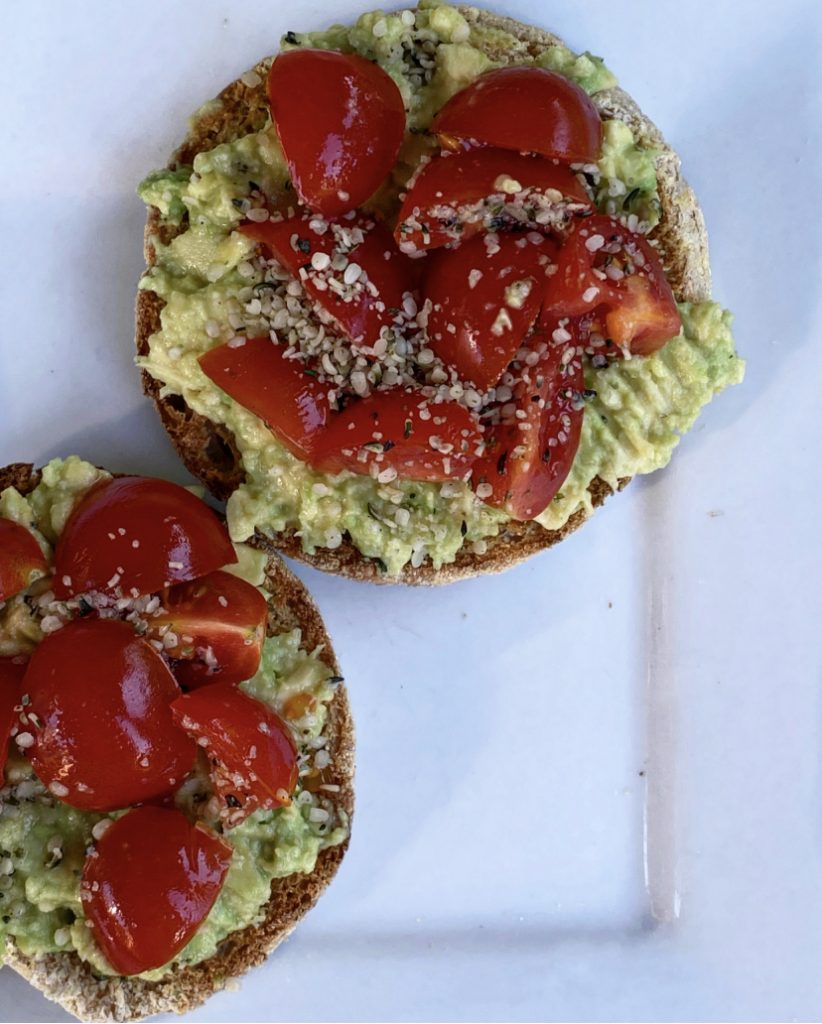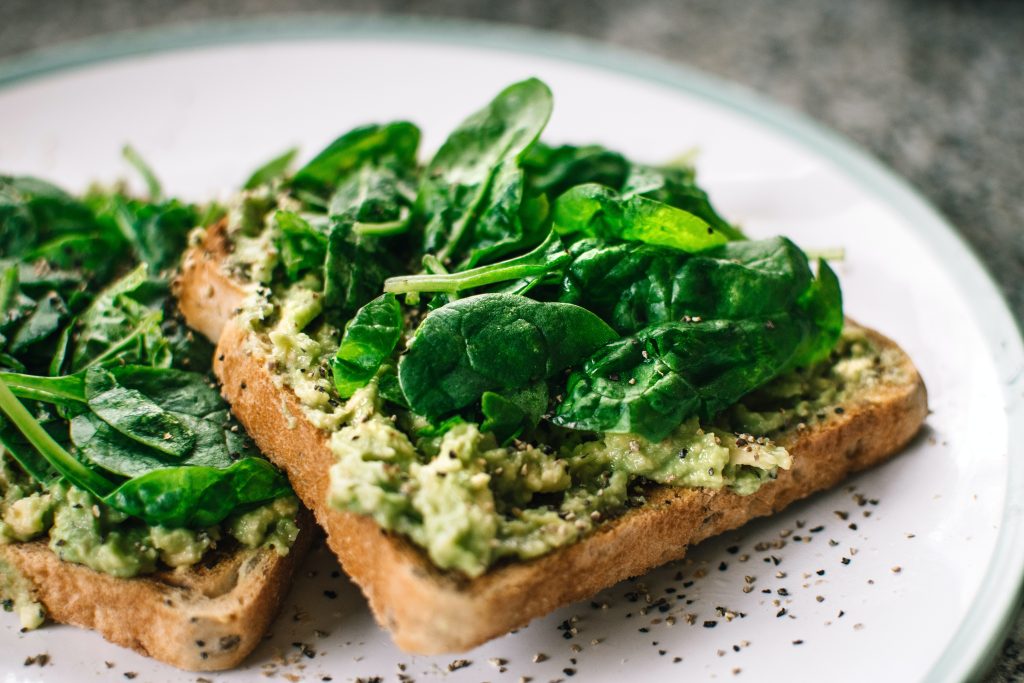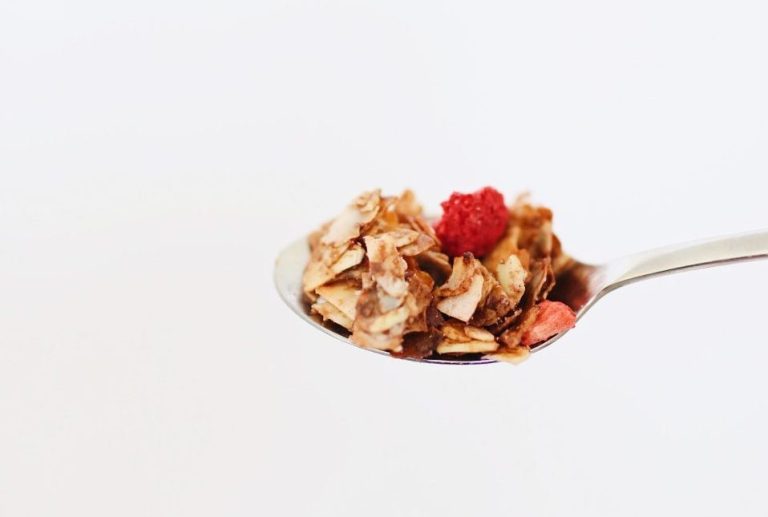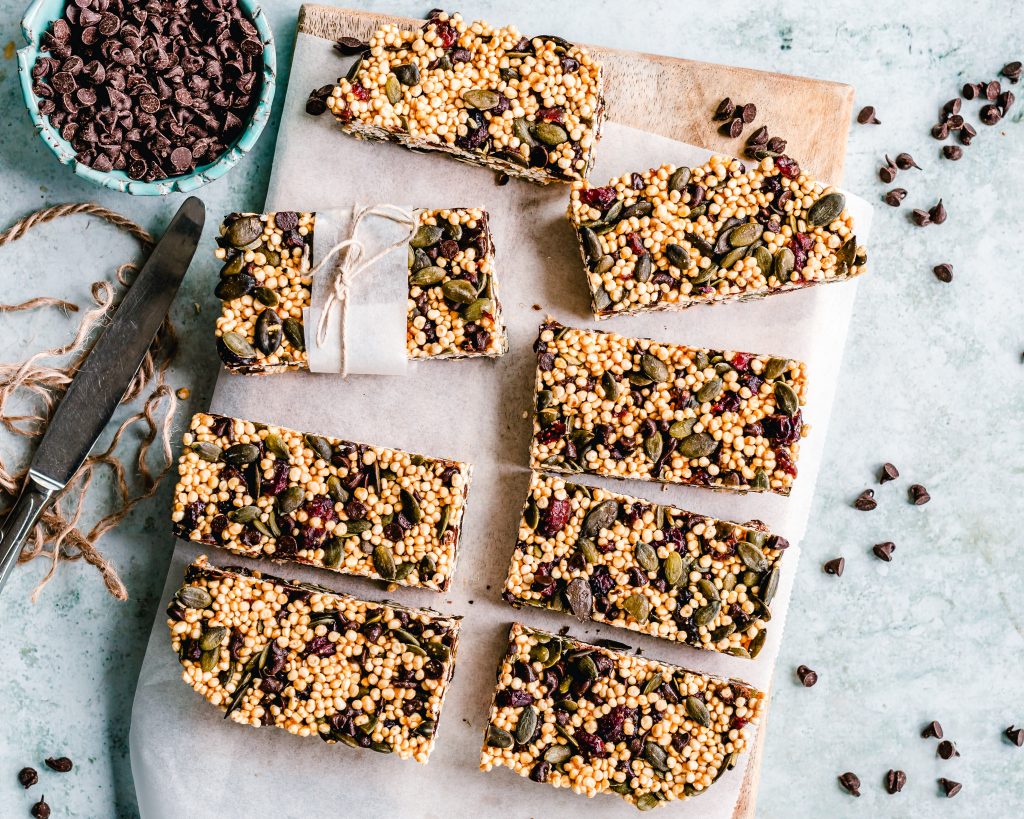Should I have Breakfast?
Breakfast is the first meal of the day, and, debatably the most important. In this post I am going to explain the reasons why it is a good idea to have breakfast, what to do if you’re not hungry in the mornings and list some healthy breakfast ideas.
Skip to
What if I’m not hungry in the morning
Is coffee enough for breakfast?

Why is breakfast important?
Breakfast is just that. Breaking the fast. Ideally, we should stop eating at around 8pm and ‘fast’ while we sleep through to the next day.
Breakfast is associated with maintaining a healthy weight, improved mood, improved physical and mental performances. If that isn’t enough, here are more reasons to have breakfast every day:
- Because you feel hungry
- It increases concentration
- Maintains energy levels
- Regulates blood sugar levels
- Prevents overeating later in the day
- Adds to your daily vitamin and mineral intake
Of course, these benefits are only going to apply with a balanced and nutritious breakfast. If you are choosing Coco Pops for breakfast with full fat milk, then it will likely have the opposite effects to the list above. If you are choosing breakfasts with no added sugars, high in fibre and protein, then your off to a good start.
What makes a good breakfast?
A good breakfast that is going to help you, not hinder you. Key nutrients to include are fibre and protein. Look out for excess sugar.
The table below is a guide to help you when looking at a product’s nutrition information panel. This is based on the AGHE.
Table 1: Nutrition information panel guide for supermarket products
| Protein | Fibre | Total fat | Saturated fat | Sugar | Sodium |
| 15-30g (for total composition of the breakfast) | >3g per serve | <10g per 100g | <3g per 100g | <15g per 100g | <400mg per 100g |
Fibre
Fibre is important for our gut health, keeping our good gut bacteria healthy, keeping us full, avoiding constipation, and aiding digestion. Wholemeal cereals and breads are good sources of fibre. You can add fruits or vegetables to breakfasts to boost the fibre profile.
Protein
Protein is important for building and maintaining muscle, repairing tissues, regulating hunger and hormone regulation. You should aim for a protein to be 15-30g for each main meal of the day depending on your individual needs.
Sugar
A reason people associate breakfast with weight gain and unhealthy is due to the sugar content of many products. This is a fair concern as starting your day with 20g of sugar is probably not going to be optimal for the everyday person. Choosing products under 15g of sugar per 100g is optimal. There are definitely options available that are in line with a healthy diet.
Common breakfasts include toast, scrambled eggs, and cereals.
I thought bread was bad for you
Bread is not inherently bad for you. Unless you have coeliac disease, bread is not going to hurt you. There are better bread options compared to others, such as white bread vs wholemeal and some have higher sodium content than other. Wholemeal bread can be a great source of fibre which can help with digestion and weight management.
Bread is a part of the grains and cereal food group. It is recommended to have 4-6 servings of grains and cereals per day. However, it is a good idea to limit bread to 2 slices (which is 2 servings) per day to ensure you are receiving other nutrients from other grain sources.
I thought milk was bad for you
Milk is a part of the dairy food group. It is recommended to have 2-3 servings of dairy per day for most healthy adults. Milk is a good source of calcium which we need for healthy bones as well as other nutrients such as protein, vitamin A, vitamin D, iodine, riboflavin, vitamin B12 and zinc.
Full-fat or full-cream milk does provide more calories and saturated fat than skim milk or low-fat products. Hence it is recommended to choose low-fat dairy products.
Some people have lactose intolerance which causes stomach upset when consuming most dairy products. Alternatives can include lactose-free milk and dairy products, or plant-based options such as soy milk, almond milk, and oat milk. Additionally, people who follow a plant-based diet can choose soy milk, almond milk, and oat milk alternatives so long as they are calcium-fortified.
I thought eggs raise your cholesterol
First, what is cholesterol?
Cholesterol is an important structural component of cell membranes and the production of hormones and bile. The body produces some, and you also consume cholesterol. There are 2 types of cholesterol, low-density lipoproteins (LDL) and high-density lipoproteins (HDL). HDL cholesterol is known as ‘good’ cholesterol as it is able to clear away LDL. LDL is also known as ‘bad’ cholesterol because high levels can build up and block arteries. Hence, high levels of LDL and low HDL cholesterol can increase your risk of cardiovascular disease and stroke. A diet high in saturated fat is linked to high cholesterol.
Eggs are a good source of protein, healthy fats, vitamin B12, and vitamin D to name a few. Eggs are also a source of fat and cholesterol. The evidence is still conflicting, however, consuming eggs in moderation with 1 egg per day, or 7 eggs a week is safe.
It is more important to focus on foods lower in saturated fats. Using olive oil or a plant sterol margarine to cook eggs is a way to avoid adding saturated fats as well as eating it with whole grains and vegetables rather than high saturated fat food like bacon.
What if I’m not hungry in the mornings?

Some of the reasons people skip breakfast are because they are not feeling hungry, are in a rush, or think breakfast will cause weight gain.
Even if you are not feeling hungry it is a good idea to have something small to give your body energy for the day. This could look like a coffee and a muesli bar and or a piece of fruit.
If you are busy in the mornings, it might be worth considering waking up an extra 15 minutes early to allow time to make a quick breakfast or pack an on-the-go breakfast to have when you get to work. Skip to on-the-go breakfast ideas
Did you eat after 8 pm? If you have a late dinner and or snack throughout the night, you may find that you are not hungry in the mornings. Unless you’re snacking on carrots throughout the night, you’re probably consuming excess calories and of low quality which is going to have a poor effect on appetite in the morning.
If you eat regular and balanced meals and are a healthy weight but you still don’t feel hungry in the mornings, then listen to your body as each individual is different.
To recap, breakfast contributes to your daily energy, protein, fibre and other nutrient intake. By skipping breakfast, you need to ‘catch up’ on these nutrients later in the day. Regular meals (breakfast, lunch, dinner and 1-3 snacks) that are balanced are the best way to provide a steady flow of energy and prevent overeating.
Is coffee enough for breakfast?

Coffee alone is not enough for breakfast as it is not considered a meal.
Caffeine is an appetite suppressant so while you may feel energized, your desire for breakfast may not be there. As discussed above, the benefit of breakfast is that it provides a portion of your daily nutrient intake. Coffee alone is not enough to provide adequate nutrients as a wholesome breakfast would. Remember, coffee along with food in the morning can be a part of a healthy diet, although we want to limit to less than 4 cups of coffee a day and avoid having coffee after 12 pm as it is a stimulant.
Healthy breakfast ideas
Bread options

- Avocado on toast
- Peanut butter and banana on toast
- Scrambled eggs on toast + spinach + mushrooms
- Veggie omelette
- Toast with cottage cheese + apple + cinnamon
- Breakfast burrito
Cereal options

- Weet-bix + honey + fruit
- Rolled oats/ porridge + honey + fruit
- Overnight oats click here for recipes
- Chia pudding
- Carman’s 5 Grain Almond, Honey & Cinnamon Granola
- Kellogg’s All-Bran Original High Fibre Breakfast Cereal
*Ideally use low fat milk with cereals and add fruit
Smoothies

Click here for smoothie recipes
On-the-go breakfast options

- Yoghurt + fruit
Good yoghurts include:
Look out for sugar and fat content in yoghurt products
- Savoury muffins
Make in advance and have ready to go. Click here for recipes
- Muesli bar
Many muesli bar products are high in fat and sugar so look out for that.
Carmen’s Muesli Bars Original are a good store-bought option or make them yourself.
I hope this post has helped you understand the benefits a good breakfast provides and has given you some new ideas to change up your breakfast!
Let the posts come to you!
Recent posts
Enter any nutrition and fitness questions below!
Your question might feature in the next post!

Comments are closed